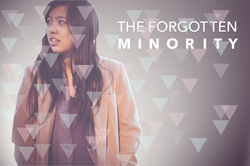http://www.washingtonpost.com/lifestyle/magazine/learning-chinese-to-fix-the-language-barrier-that-leaves-parents-and-son-near-strangers/2013/10/22/f2438c1a-fb7f-11e2-8752-b41d7ed1f685_story.html
Many Asian Americans deal with the language barrier, me included. This article from The Washington Post accounts one case of the language barrier and how this person set out to solve this problem by learning his parents' native tongue in college. I could relate because I speak cantonese at home only with my parents but English in every other interaction with people. Being born in raised in San Francisco, my parents put me through Chinese school to make sure that the barrier would not completely prevent us from speaking to one another. But I was young and only resented the fact that they hadn't learned English in America. I hated Chinese school and slacked off, but luckily can still speak enough Chinese to get my point across to my parents. But I was still disadvantaged in my every day life. At teacher conferences, I had to translate for my parents, I learned all my English from school, without my parents' help, I couldn't get help with my homework from my parents, and frankly, I was embarrassed that my parents could not speak English. The worst part of it all is that I could not hold a grudge on my parents because they gave up everything and came to America to improve my life, but at the expense of losing strong communication with their children. This is something I'll struggle forever but it makes me who I am. Read this article and you may find some similarities to your own lives.
- Michelle Li
Many Asian Americans deal with the language barrier, me included. This article from The Washington Post accounts one case of the language barrier and how this person set out to solve this problem by learning his parents' native tongue in college. I could relate because I speak cantonese at home only with my parents but English in every other interaction with people. Being born in raised in San Francisco, my parents put me through Chinese school to make sure that the barrier would not completely prevent us from speaking to one another. But I was young and only resented the fact that they hadn't learned English in America. I hated Chinese school and slacked off, but luckily can still speak enough Chinese to get my point across to my parents. But I was still disadvantaged in my every day life. At teacher conferences, I had to translate for my parents, I learned all my English from school, without my parents' help, I couldn't get help with my homework from my parents, and frankly, I was embarrassed that my parents could not speak English. The worst part of it all is that I could not hold a grudge on my parents because they gave up everything and came to America to improve my life, but at the expense of losing strong communication with their children. This is something I'll struggle forever but it makes me who I am. Read this article and you may find some similarities to your own lives.
- Michelle Li

 RSS Feed
RSS Feed